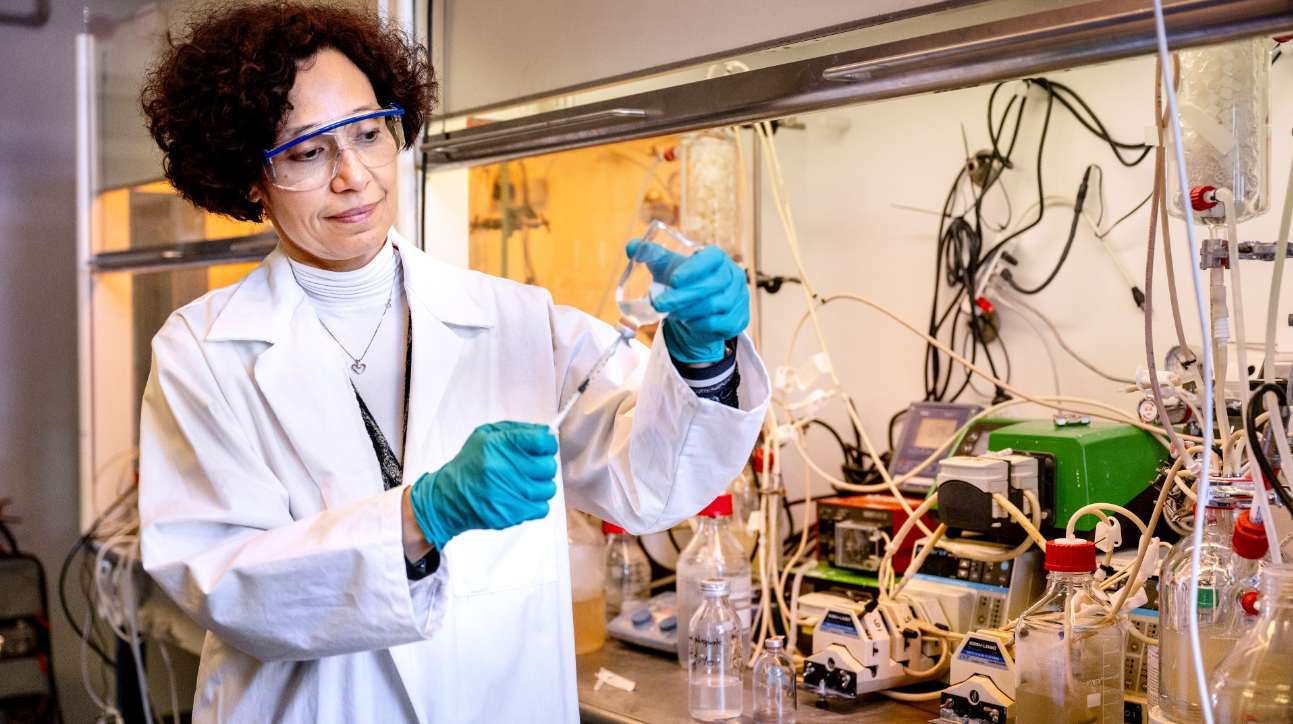Hari Gavala points to a cigar-shaped steel cylinder that is a few meters high and sits behind a glass window in her lab at DTU Chemical Engineering. The cylinder is a bioreactor housing millions, if not billions, of loyal ‘employees’, that can only be seen by the naked eye when they are lumped together. These microorganisms are the invisible heroes that can convert CO2 and syngas into methane, ethanol, or organic acids, which are building blocks that can be used to produce more sustainable alternatives to anything from fuels to chemicals, plastics and food.
"The process is not much different from brewing beer at a microscopic level, but the potential is enormous for the green transition," says Hari Gavala, associate professor at DTU Chemical Engineering.
Read the rest of the article on the DTU website here.
